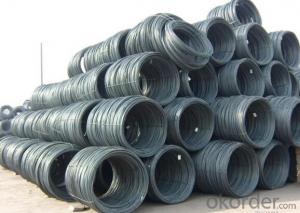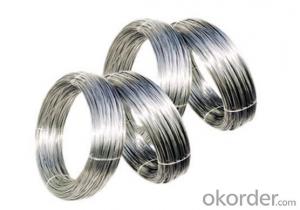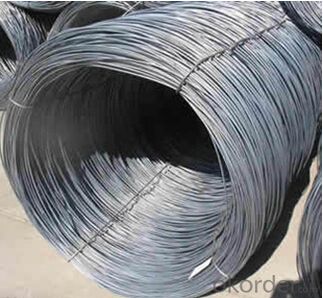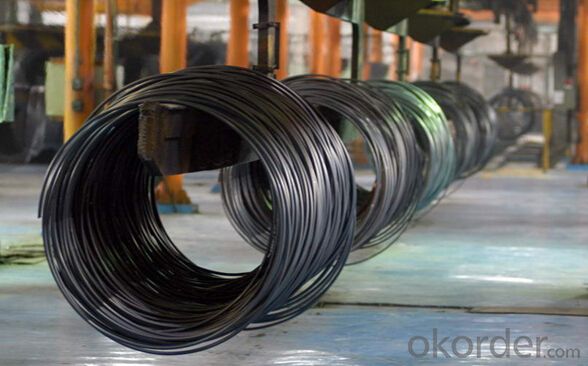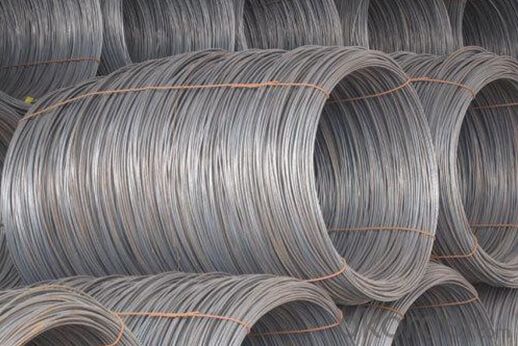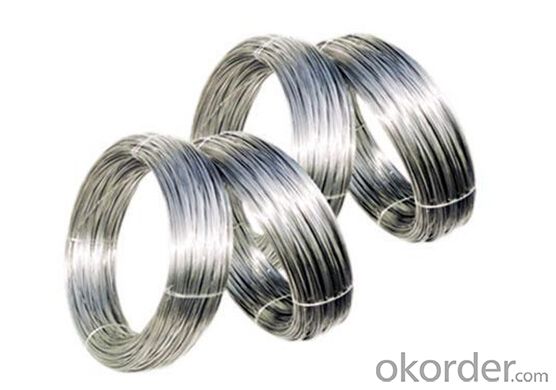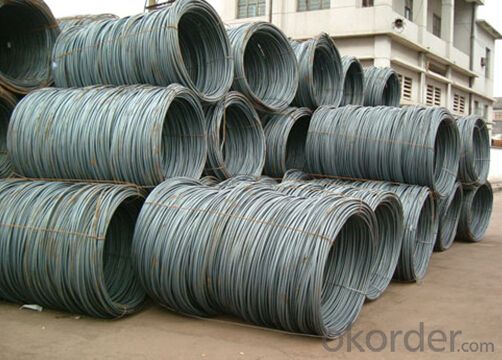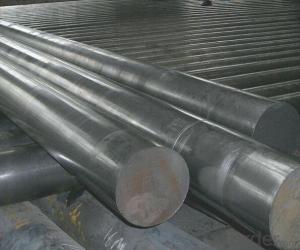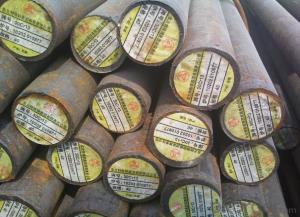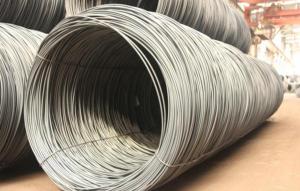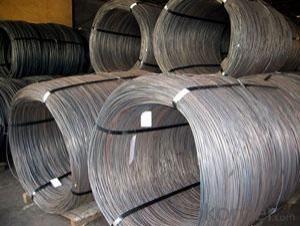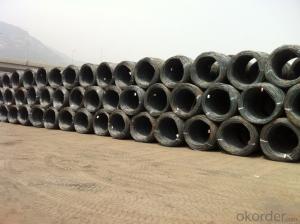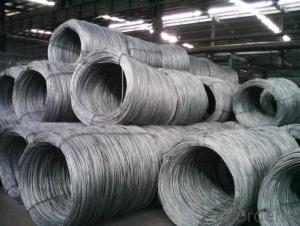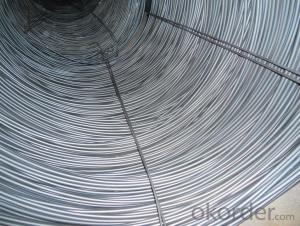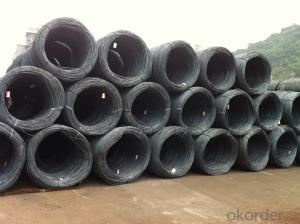Wire Rod Grade CNBM SAE1008B-1012B-1018B-1022B
- Loading Port:
- Tianjin
- Payment Terms:
- TT OR LC
- Min Order Qty:
- 25 m.t.
- Supply Capability:
- 10000 m.t./month
OKorder Service Pledge
OKorder Financial Service
You Might Also Like
Specification
High Quality Wire Rod-SAE1008B/1012B/1018B/1022B
Specification
Steel Grade: | SAE | Standard: | AISI,ASTM,BS,DIN,GB,JIS | Wire Gauge: | 5.5--1.4mm |
Place of Origin: | China (Mainland) | Type: | Drawn Wire | Application: | Manufacturing |
Alloy Or Not: | Is Alloy | Model Number: | 1082B 77B | Brand Name: |
|
Grade: | SAE 1006B SAE 1008B SAE1018B | Pack:: | in coils, in bundles | Coil weight:: | 2000kg-3000kg |
Size:: | 5.5mm 6.5mm 8mm 10mm 12mm 14mm 16mm | Chemical: | High carbon; Low carbon | Surface:: | Round, no twisted, light and smooth |
Dia tolerance:: | +/-0.3mm |
|
|
|
|
Chemical Composition
Grade | Chemical Composition(%) | |||||
C | Mn | Si | S | P | Cr | |
SAE1006B | 0.03~O.07 | ≤0.32 | ≤0.30 | ≤0.045 | ≤0.040 | 0.3-0.35 |
Mechanical properties | ||||||
Yield strength(N/mm2) | Tensile strength(N/mm2) | Elongation(%) | ||||
250-280 | 350-380 | ≥32 | ||||
Grade | Chemical Composition(%) | |||||
C | Mn | Si | S | P | Cr | |
SAE1008B | 0.10max | 0.3~O.50 | 0.15max | 0.050max | 0.040 max | 0.3-0.35 |
Mechanical properties | ||||||
Yield strength(N/mm2) | Tensile strength(N/mm2) | Elongation(%) | ||||
≥195 | 315-430 | ≥30 | ||||
Company Information
CNBM International Corporation is the most import and export platform of CNBM group(China National Building Material Group Corporation) ,which is a state-owned enterprise, ranked in 270th of Fortune Global 500 in 2015.
With its advantages, CNBM International are mainly concentrate on Cement, Glass, Iron and Steel, Ceramics industries and devotes herself for supplying high quality series of refractories as well as technical consultancies and logistics solution.
After-sale service | CNBM provides the services and support you need for every step of our cooperation. We’re the business partners you can trust; you can relax and get on with doing business. |
For any problem, please kindly contact us at any your convenient time, we’ll reply you in our first priority within 24 hours | |
Advantages | Industry experience over 20 years. |
Shipment of goods -More than 70 countries worldwide. | |
The most convenient transport and prompt delivery. | |
Competitive price with best service. | |
High technical production line with top quality products. | |
High reputation based on best quality products. |
Products Show
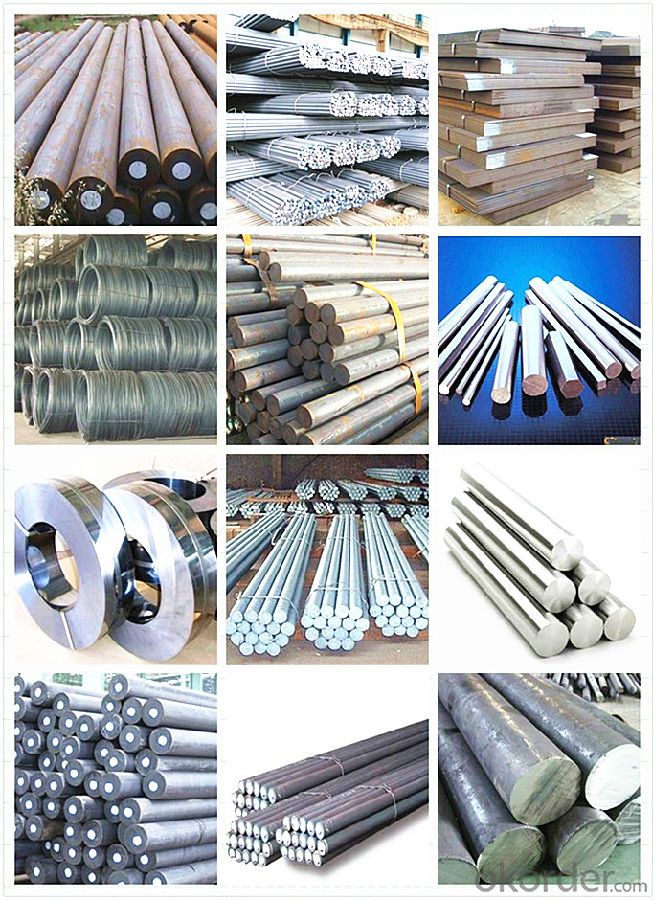
FAQ
Are you a trading company or manufacturer? | Manufacturer |
What’s the MOQ? | 3 metric ton |
What’s your delivery time? | 15-35 days after downpayment received |
Do you Accept OEM service? | Yes |
what’s your delivery terms? | FOB/CFR/CIF |
What's the Payment Terms? | 30% as deposit,70% before shipment by T/T |
Western Union acceptable for small amount. | |
L/C acceptable for large amount. | |
Scrow ,Paybal,Alipay are also ok | |
Why choose us? | Chose happens because of quality, then price, We can give you both. |
Additionally, we can also offer professional products inquiry, products knowledge train (for agents), smooth goods delivery, excellent customer solution proposals. | |
What's your available port of Shipment? | Main Port, China |
What’s your featured services? | Our service formula: good quality+ good price+ good service=customer's trust |
Where are your Market? | Covering more than 160 countries in the world |
- Q: How is special steel used in the production of heat exchangers?
- Special steel is used in the production of heat exchangers due to its high strength, corrosion resistance, and ability to withstand extreme temperatures. It is used to construct the tubes, plates, and other components of the heat exchanger, ensuring efficient heat transfer and durability in demanding operating conditions.
- Q: How is silicon steel used in electrical transformers?
- Silicon steel is used in electrical transformers due to its unique magnetic properties. It has a high electrical resistance, low coercivity, and high magnetic permeability, making it an ideal material for the cores of transformers. The silicon content in the steel reduces the eddy current losses, enhancing the efficiency of the transformer. Additionally, the laminated structure of silicon steel helps to minimize the formation of eddy currents, further improving the performance and reducing energy losses in transformers.
- Q: What are the different testing methods used for special steel?
- Some of the different testing methods used for special steel include hardness testing, tensile testing, impact testing, metallographic examination, ultrasonic testing, and magnetic particle testing.
- Q: How does the carbon content affect the properties of special steel?
- The carbon content plays a crucial role in determining the properties of special steel. Higher carbon content tends to enhance its hardness, strength, and wear resistance. This is because carbon forms interstitial solid solutions with iron, creating stronger and more stable iron carbides. On the other hand, lower carbon content leads to increased ductility and toughness. The carbon content also influences the steel's ability to be heat-treated, affecting its response to processes like quenching and tempering. Therefore, controlling the carbon content allows manufacturers to tailor the properties of special steel to meet specific application requirements.
- Q: What are the environmental benefits of using special steel?
- Special steel, such as stainless steel, offers several environmental benefits. Firstly, it is highly durable and long-lasting, reducing the need for frequent replacements and minimizing waste generation. Additionally, special steel is corrosion-resistant, which reduces the use of toxic coatings or chemicals to protect against rust and degradation. Furthermore, the production of special steel requires less energy and emits fewer greenhouse gases compared to other materials like aluminum or plastic. Finally, special steel is recyclable, allowing for a closed-loop system where it can be repurposed and reused, further reducing the environmental impact. Overall, the use of special steel contributes to sustainability by conserving resources, reducing pollution, and promoting circular economy practices.
- Q: What are the factors that affect the machinability of special steel?
- The factors that affect the machinability of special steel include its chemical composition, microstructure, hardness, and the presence of impurities or additives. Additionally, the cutting conditions and tool materials used during machining operations also play a significant role in determining the machinability of special steel.
- Q: How does special steel contribute to the packaging industry?
- Special steel plays a crucial role in the packaging industry by providing durable and corrosion-resistant materials for manufacturing packaging equipment. It enables the production of high-quality, sturdy containers, cans, and closures that ensure product safety, prevent leakage, and maintain freshness. Additionally, special steel's strength and flexibility make it suitable for creating innovative packaging designs, such as lightweight yet robust materials, enhancing product appeal and convenience for consumers.
- Q: How does special steel contribute to product innovation?
- Special steel contributes to product innovation in several ways. Firstly, its unique properties such as high strength, durability, and resistance to corrosion enable manufacturers to develop new and improved products that can withstand harsh conditions and offer enhanced performance. Secondly, special steel's flexibility and versatility allow for the creation of complex shapes and designs, enabling the development of innovative and aesthetically pleasing products. Additionally, the use of special steel in product manufacturing can lead to advancements in various industries such as automotive, aerospace, and energy, as it allows for the production of lighter, more fuel-efficient, and environmentally friendly products. Overall, special steel provides the foundation for product innovation by enabling the creation of novel, high-quality, and technologically advanced products.
- Q: How does mold steel resist wear and erosion?
- Mold steel resists wear and erosion due to its high hardness, toughness, and resistance to deformation. It has a fine microstructure that allows it to withstand the repetitive stresses and strains associated with molding processes. Additionally, certain alloying elements like chromium and molybdenum enhance its corrosion resistance, making it more durable against wear and erosion caused by environmental factors.
- Q: How is high-strength steel used in the automotive industry?
- High-strength steel is extensively used in the automotive industry for various applications. It is commonly used for manufacturing car frames, body panels, and structural components due to its exceptional strength, durability, and lightweight properties. This type of steel enhances the overall safety and performance of vehicles while reducing their weight, thereby improving fuel efficiency and reducing emissions. High-strength steel also provides enhanced protection in case of accidents by effectively absorbing and distributing energy during collisions.
Send your message to us
Wire Rod Grade CNBM SAE1008B-1012B-1018B-1022B
- Loading Port:
- Tianjin
- Payment Terms:
- TT OR LC
- Min Order Qty:
- 25 m.t.
- Supply Capability:
- 10000 m.t./month
OKorder Service Pledge
OKorder Financial Service
Similar products
Hot products
Hot Searches
Related keywords
